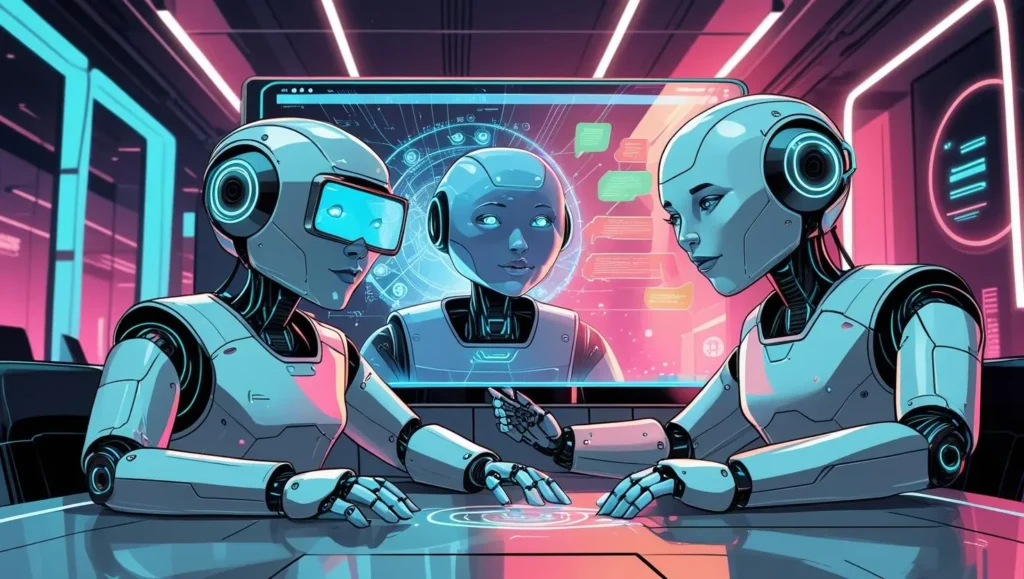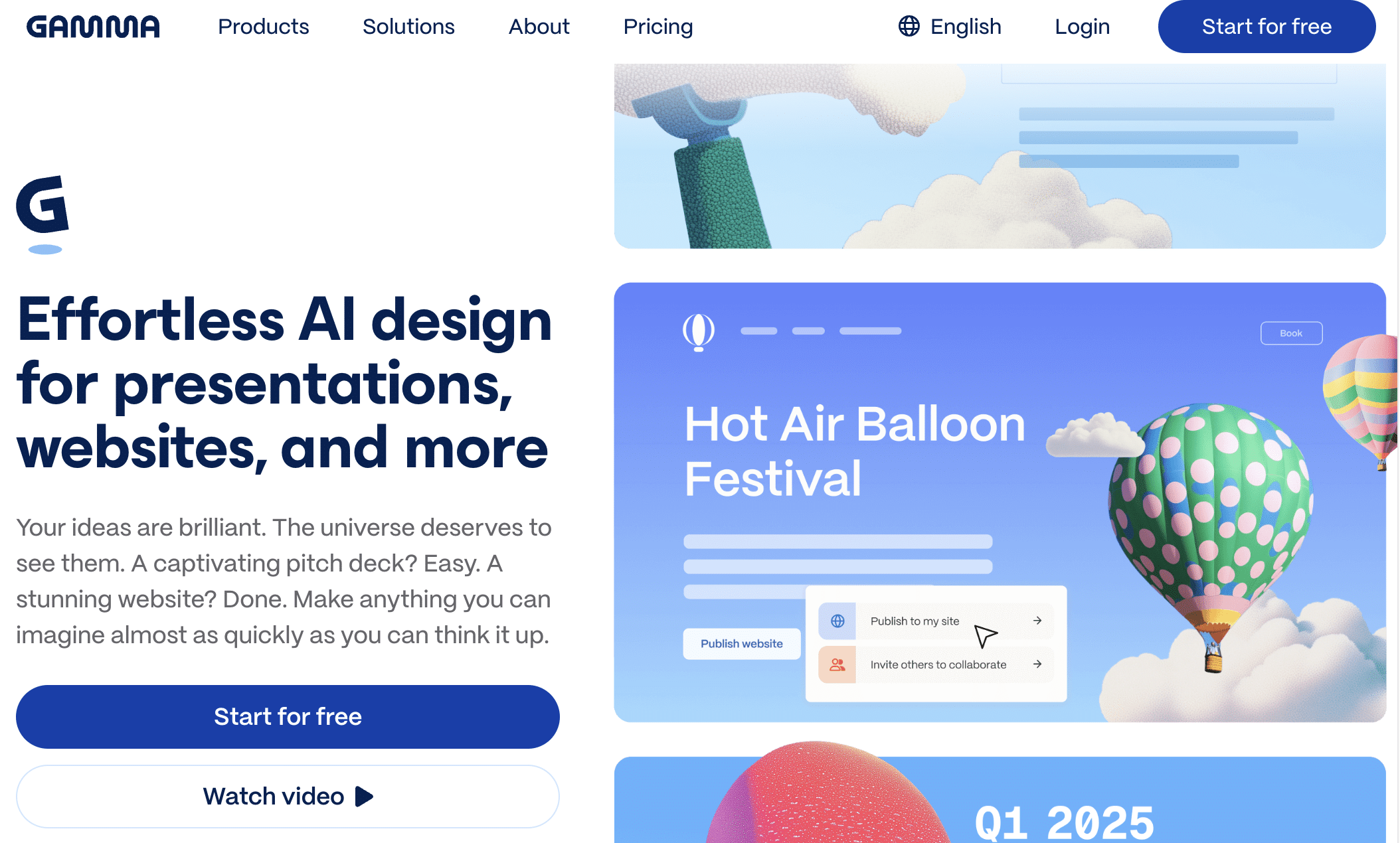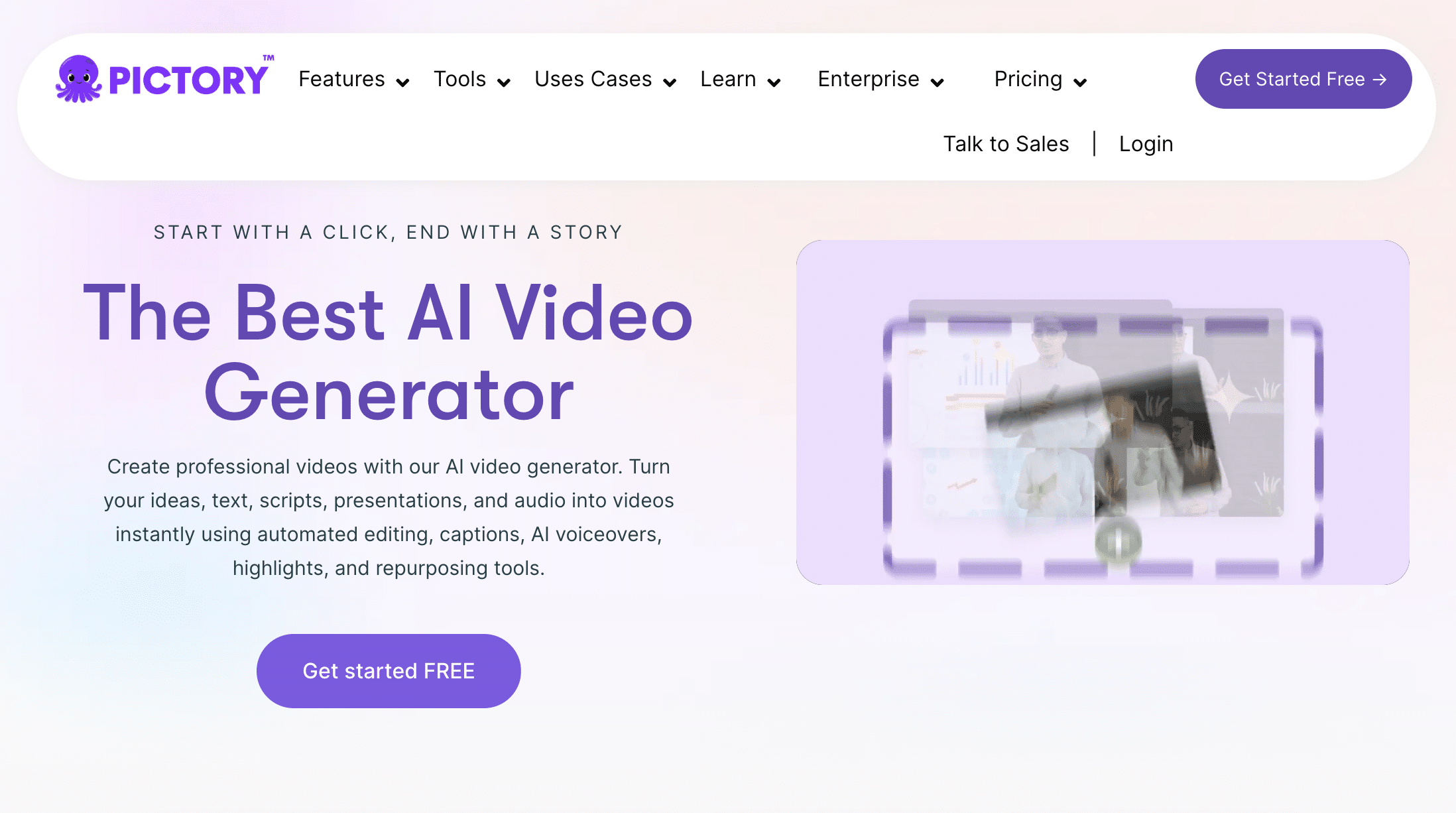ChatGPT has become the world’s most widely used AI tool. Since its launch by OpenAI, it has become the AI assistant of choice for individuals and businesses alike! Content creation, programming assistance, summaries, translation, automation…
But ChatGPT is no longer alone. Other AIs have entered into competition with ChatGPT, often more transparent or more respectful of personal data.
Nation AI, Claude AI, Mistral AI, Perplexity – are these AIs really alternatives to ChatGPT? This article will help you compare ChatGPT with other AIs! In particular, we’ll explain how it’s possible to combine ChatGPT with these AIs to get more reliable results, tailored to each AI’s specific use!
ChatGPT’s limitations
Since its launch, ChatGPT has established itself as one of the most powerful tools for generative artificial intelligence. There are over 500 million active users in 2025! ChatGPT’s reputation has been built on its accessibility, the versatility of its uses (writing, translation, code, synthesis) and the quality of its GPT-4 and GPT-4o models.
However, more and more users, whether companies, institutions or developers, are asking themselves: is it still relevant to bet everything on ChatGPT?
Behind the slick interface and well-turned answers, there are some very real limitations to ChatGPT. Firstly, ChatGPT can be wrong, and not just a little! It sometimes invents facts, answers incorrectly or masks its uncertainty with a convincing turn of phrase. ChatGPT’s errors and inventions are commonly referred to as “hallucinations”.
Some point to technological dependence on a single American player, whose choices (political, ethical, pricing) are totally beyond the end-user’s control.
The other major drawback to ChatGPT is its cost. While the free version (GPT-3.5) is sufficient for simple uses, ChatGPT’s true performance is unlocked with a subscription that gives access to versions GPT-4, GPT-4o.
That’s why more and more professionals are turning to other AI solutions. The aim is not necessarily to replace ChatGPT, but to better support it, or to complement it with another AI, such as Nation, Claude, Mistral or Perplexity.
How do Nation AI, Claude and Mistral AI stack up against ChatGPT and other AIs in terms of safety?
In terms of security, Claude and Mistral AI clearly stand out from other AIs on the market, notably ChatGPT and Gemini! Data security is an increasingly important criterion when choosing an AI.
Why is ChatGPT’s data management problematic?
ChatGPT is often singled out for its collection and storage of interactions, which can be problematic for sensitive or confidential data. Data is hosted on secure servers, mainly in the USA. Although the privacy policy is detailed, the actual management and use of data is not transparent to the end user:
- By default, conversations are kept even if the user deletes them, by virtue of recent legal obligations. They are not used for model training unless explicitly agreed, but they remain stored and can be consulted internally if necessary.
- Users can limit the use of their data for model training by adjusting the privacy settings, but this does not totally prevent the storage of conversations.
- Professional accounts offer additional guarantees: data is not used for training and can be deleted more strictly.
We therefore strongly advise you not to share sensitive, medical, banking or confidential data via ChatGPT, as no standard setting guarantees their total and immediate deletion from the system!
Gemini and data security
Gemini is fully integrated into the Google ecosystem: interactions are systematically associated with the user’s Google identity, and this data is potentially cross-referenced with other Google services. Also, the processing servers are for the most part outside Europe, initially in the United States, far from any strict compliance with the RGPD (the General Data Protection Regulation)
Claude and Mistral AI (Le Chat), the two data security-compliant AIs (RGPD).
Claude has a built-in ethical charter to avoid biased responses. He favors caution and self-censorship to minimize errors, but also inappropriate content. Claude pays particular attention to the protection of user data, its use is limited to improving the service without commercial exploitation or for training purposes for their models. Data is not used to train the model without explicit consent.
Mistral AI, developed and hosted in Europe, has an open source architecture guaranteeing total data control and strict compliance with the RGPD, with no transfers to servers outside Europe.Models can be deployed locally (on-premise) with maximum data confidentiality. Mistral AI is today considered one of the most robust solutions for companies wishing to combine confidentiality, autonomy and performance.
Alternative to ChatGPT: comparison with Claude AI
Compared to ChatGPT, Claude AI offers an interesting alternative, particularly in terms of security and ethics. Behind Claude is Anthropic, an American company founded by former OpenAI members.
The real difference lies in security and ethics. Claude places great emphasis on data protection and ethical alignment, such as limiting data collection and use, and ensuring that his responses respect human and moral values, avoiding bias or problematic content. Its hosting is not exempt from criticism, as it is mainly based in the USA.
In terms of creative writing, ChatGPT remains ahead of Claude thanks to its versatility and varied style. On the other hand, Claude excels in the analysis of long documents, an area where ChatGPT is limited by a more restricted processing capacity. For programming, ChatGPT offers more advanced support than Claude, particularly for debugging.
ChatGPT vs Mistral AI: who’s the strongest?
ChatGPT is very good for anything to do with text creation: writing stories, answering questions, helping with coding… It understands context well and gives clear, fluid answers, even when the conversation goes on for a long time. What’s more, it’s easy to use, with a host of applications and services already integrated.
Mistral AI is a little different. Its models are open source, which means they can be easily modified and adapted. It’s great at handling multiple languages, technical and logical tasks, and adapts well to very specific needs. On the other hand, it’s a little less at ease when it comes to inventing highly creative texts.
As with Claude, the real difference between ChatGPT and Mistral AI lies in data management and confidentiality. Mistral AI offers open source models that can be deployed locally, giving greater control over data and enhanced compliance with European regulations.

Perplexity, an alternative to ChatGPT?
ChatGPT and Perplexity AI are not at all in the same league when it comes to their uses. ChatGPT is first and foremost a highly versatile and creative text generator. It’s great for writing articles, scripts, dialogues and even programming assistance. It’s a real companion for writing, content creation and fluid conversation, even on complex or imaginative subjects.
Perplexity AI, on the other hand, is designed for factual information retrieval and rapid data verification.
The AI was developed by a young team of AI researchers and engineers based in the USA in 2022. Perplexity combines a powerful language model with native web access. It is this native access to the web that enables it to provide up-to-date answers in real time, with clear sources! Perplexity is used for document watch, news monitoring or any task requiring accurate, verifiable information.
ChatGPT: why it remains the leader (and in what cases)
It’s clear that ChatGPT remains one of the leaders in AI today.
The latest version of ChatGPT, ChatGPT efficiently handles very long contexts thanks to an extended working memory (up to 128,000 tokens). This makes it possible to handle complex projects, analyze long documents or several files at the same time, without losing consistency.
GPT-4o is capable of understanding and generating not only text, but also images, PDFs, Excel sheets and even short videos. It also features advanced voice generation (voicebot) with customizable voices.
In addition, the ChatGPT API enables rapid integration into professional workflows to automate tasks, create personalized wizards or develop customized business applications. Subscribers can also create customized GPTs tailored to their specific needs, and access a ” GPT Store ” to share or monetize their creations. ChatGPT has a long memory (up to 30 days). It’s also possible to customize ChatGPT and thus modify the AI’s behavior!
ChatGPT is always at the top of its game for :
- Content writing: LinkedIn posts, newsletters, product sheets, video scripts.
- AI-assisted assistance: meeting summaries, e-mail reformulations, customer FAQs, report summaries.
- Programming: code generation, debugging, technical documentation, understanding scripts.
- Pedagogy to explain concepts, lesson plans, quizzes, help with revision.
- Automation and customer support: chatbots, automated responses, CRM integration.
- For idea generation and creativity: brainstorming, brand names, storytelling, marketing concepts.
- Text translation and reformulation: multilingual translation, tone adaptation, simplification of complex texts.
Combining multiple AIs with ChatGPT
It’s perfectly possible to combine several AIs in a single chatbot. In fact, we strongly recommend it, for several reasons! Each AI has its strengths. Nation AI for simplicity, Claude for long texts, Perplexity for search, Mistral for multilingualism, ChatGPT for creativity… Choose the best one for your needs.
In particular, this reduces ChatGPT’s hallucinations: by cross-referencing the answers of several AIs, the information will be more reliable. If one AI is wrong, another can correct or qualify it.
Here are some examples of how ChatGPT can be used to combine several AIs.
Using ChatGPT and Perplexity for web copywriting
Perplexity explores the web in real time and provides sourced, reliable answers, perfect for checking facts or keeping up with current events.
ChatGPT reformulates this information, structures it and adapts it to your audience, to produce clear, synthetic content.
This combination limits hallucinations while producing up-to-date, well-written content.
ChatGPT + Claude for document analysis
Claude efficiently processes long documents and understands complex contexts thanks to his great memory capacity.
ChatGPT transforms this analysis into easy-to-read, well-organized summaries, presentations or teaching aids.
These two AIs will combine analytical rigor with fluid restitution.
ChatGPT and Mistral AI to create AI assistants
Mistral AI, thanks to its open source models, enables local deployment and control of your sensitive data. It’s particularly suited to regulated environments, advanced customization needs and RGPD compliance.
We’ve added ChatGPT as a complement to Mistral AI, to bring language comprehension capabilities to the table, for greater fluidity in response generation.




